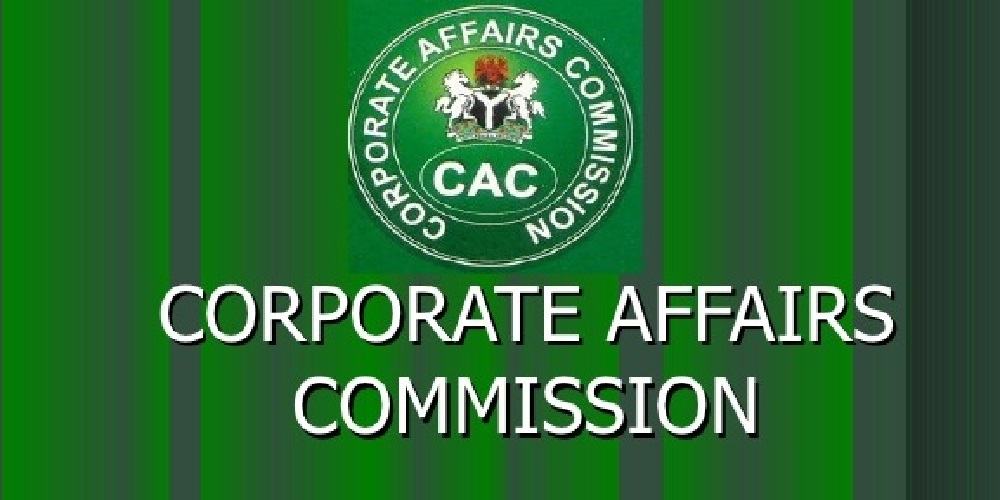News
Death toll rises as cholera rages in Lagos, Oyo, Kano

Lagos is shivering under the outbreak of cholera. A vicious intestinal illness has gripped the state, adding a layer of fear to the already bustling streets. With 24 deaths, 35 confirmed cases and 417 suspected cases across the state as of Friday, July 21, 2024, experts say the outbreak isn’t just a national concern but a local fight for survival, particularly in areas where access to clean water and proper sanitation remains a luxury.
Apart from poor water and sanitation challenges, the plight of citizens leaves much to be desired.
17-year-old Bayo was rushed-in with his frail body racked with chills. His worried mother, Dolapo, wiped his face, a deep fear etched on her face. “Please admit him, don’t reject us. Today is a public holiday, please help, it started yesterday,” Dolapo murmured. “Just stomach cramps at first, but now…” Bayo unfortunately lost his life in one of the private hospitals in the Ago area of Lagos. His case is among the rising number of cholera infections plaguing Lagos.
With limited resources and a densely populated city to contend with, Lagos grapples with controlling the outbreak.
Sadly, water and sanitation remain a challenge in the state. From the end of Makoko to the highbrow areas of Victoria Island in Lagos, potable water remains a challenge despite having water all around the city.
A situation report issued by the state Commissioner for Health, Prof Akin Abayomi, last Friday (EPI Week 25), as of 19th of June, 2024, revealed that the outbreak has swept across the 20 LGAs.
While the highest outbreak occurred in Ajeromi, Kosofe, Epe, Ikorodu, Alimosho and Eti-Osa LGAs, as of 10th of June, 2024, the Commissioner said there was the need to adhere strictly to personal and environmental hygiene to stay safe from infection risk.
However, in what seems like an attack on cholera in countries, the World Health Organisation (WHO) announced a resurgence of cholera worldwide.
WHO said in May 2024, a total of 46,364 new cholera cases were reported from 19 countries, showing 58 per cent increase from the previous month.
It said from January 1, 2024 to May 26, 2024, a total of 194,897 cholera cases and 1,932 deaths were reported from 24 countries across five regions.
WHO said the Eastern Mediterranean region recorded the highest numbers (98,003 cases; seven countries), followed by the African region (92,789 cases; 14 countries), the Americas (2,672 cases; one country), the South-East Asia region (1,328 cases; two countries), and the European region (105 cases; one country).
WHO added that during this period, the African region reported 1,698 deaths; the Eastern Mediterranean region, 256 deaths; the region of the Americas, 13 deaths; the Southeast Asia region, four deaths; and the European region, one death.
The global body’s report comes as Lagos, Nigeria’s most populous city and commercial capital, battles a cholera outbreak.
Blame
However, while the disease continues to sweep across countries and states in Nigeria, experts have continued to blame the Nigerian government for paying lip service to water and sanitation.
Today, most communities across Nigeria cannot boast of adequate safe drinking water. The affordability of bottled water, often used as a safer alternative, is also a challenge for many families.
For instance, in Lagos, sachet water, the presumed alternative to borehole water, is sold, in many areas, for N50 and, in others areas, it goes for N30. Five bags of water are sold for N1,500 and in some areas N2,000.
Bottle water goes for N200 per bottle. Sadly, many Nigerians who have resorted to borehole water can no longer boil before drinking due to the hike in electricity tariff.
Public health experts have warned that without improved water, sanitation and hygiene, cholera will remain endemic in Lagos and Nigeria in particular.
According to the United Nations Children’s Fund (UNICEF) Chief, Lagos Field Office, Celine Lafoucrier, safer water could save 1.4 million child deaths from diarrhoea, 500,000 deaths from malaria, 860,000 child deaths from malnutrition, as well as protect 10 million people from serious illnesses like lymphatic filariasis and trachoma.
She said the current outbreak demonstrates the need for an urgent government focus on ensuring water provided to the population is clean and risk-free.
According to her, good water and sanitation infrastructure play a crucial role in reducing disease outbreaks such as cholera, which causes an estimated 100,000 deaths annually.
Lip service
In an interview with Sunday Vanguard, a public health disease expert, Dr Casmir Ifeanyi, said the country has continued to pay lip service to water, sanitation and hygiene.
“I challenge you to go and dig it up. Of the 30 states already reported to have the outbreak, how many of them have a public potable water supply in place? I can categorically tell you, none. So, we do know that cholera is a disease that thrives where water, sanitation and hygiene are at its low rate,” Ifeanyi stated.
He emphasised the need for improved water, sanitation and hygiene (WASH) practices, including addressing open defecation and ensuring access to clean water which are essential for preventing future outbreaks.
The public health expert warned that the outbreak, particularly severe in developed areas of Lagos, highlights deficiencies in sanitation and water quality.
According to him, schools with proper hygiene facilities and access to clean water could reopen, after mid-term holiday, with heightened public health education on hygiene practices.
However, expressing concerns about densely populated areas with limited access to clean water, Ifeanyi said: “It must be said that the situation that will sustain this outbreak is quite high. I give you an example. I do not know how much a bag of sachet water is sold in Lagos, but, in most of Nigeria, it is now between N400 and N600 and, if you buy that it should be either 20 sachets. I do not know how long it would sustain families and, besides, the source of this sachet water and also bottled water is also questionable because their conformity to water processing is still very unsure.”
Increased Public Health Measures
Ifeanyi, who is also the National President of the Association of Medical Laboratory Scientists of Nigeria (AMLSN), urged Lagos State government to prioritize improved detection and surveillance of cholera and cholera-like illnesses. “This includes contact tracing, increased access to cholera testing kits, and a thermal risk factor analysis specific to Lagos,” he said.
Noting that food safety is another critical area, he stressed that the state government should implement stricter food safety protocols, including lab testing of imported and commercially sold water.
“Public health authorities must beef up to detect cholera and cholera-like illnesses and also to put in place a surveillance system that promotes disease tracking. That is to say, if you have an individual whose case is confirmed, then there’s a need to do contact tracing and to evaluate the contact,” the expert said.
Expressing disappointment in the description of the Lagos cholera as aggressive without the proper name of the type, he pointed out that the government has failed to provide infrastructure and facilities for diagnostic testing and typing whenever there is an outbreak.
According to him, there was a need to identify the biotype of the cholera responsible for the outbreak and not use ominous words like aggressive.
Glimmer of Hope
Ifeanyi said the state government should immediately deploy cholera vaccine particularly for school children, adding that individual vigilance remains paramount.
He advised Lagosians to boil or treat drinking water, avoid raw fruits and vegetables, and practice frequent and thorough handwashing.
Corroborating his views, a public physician, Dr Femi Oyekan, who spoke to Sunday Vanguard, stressed that cholera outbreaks originate and spread within communities, making community-led and participatory approaches essential for sustainable prevention.
According to him, citizens also have a lot of things to do to help combat cholera outbreak by ensuring proper hygiene, keeping their environment clean, avoiding open defecation, and ensuring proper waste and sewage disposal.
“Ultimately, access to clean water and sanitation is critical in preventing outbreaks. Communities must take collective action to ensure clean water access and maintain good hygiene. Identifying and empowering positive role models within the community can encourage the widespread adoption of healthy.
News
Full list: FG approves N110bn to rehabilitate medical schools 18 institutions

President Bola Ahmed Tinubu has approved the sum of One Hundred And Ten Billion Naira (N110bn) to be shared to 18 universities. The move according to pundits is to boost medical education following the recent ‘japa’ trend of doctors and other health workers.
Each university will receive about N4 billion, including N750 million for hostel construction, to support eight simulation labs across the zones and increase enrolment in medical sciences.
The 18 universities benefiting from the N110bn grant are:
1. Nnamdi Azikiwe University
2. Bayelsa State University
3. University of Lagos
4. Ahmadu Bello University
5. University of Benin
6. Imo State University
7. University of Ibadan
8. University of Medical Sciences, Ondo
9. Benue State University
10. Umaru Musa Yaradua University
11. University of Nigeria
12. University of Calabar
13. Abubakar Tafawa Balewa University
14. University of Jos
15. University of Ilorin
16. Gombe State University
17. Usmanu Danfodio University
18. University of Maiduguri
This initiative is designed to improve infrastructure in medical schools through the rehabilitation of lecture theatres and laboratory facilities, thereby enhancing capacity to take in and produce more doctors, nurses, dentists, and pharmacists for the nation.
News
CAC gives 6-week notice for unregistered businesses to register

The Corporate Affairs Commission (CAC) has issued a six-week notice to unregistered businesses to register with the Commission.
This was disclosed in a statement issued by the CAC on Tuesday, titled: “PUBLIC NOTICE: CARRYING ON BUSINESS IN NIGERIA UNDER AN UNREGISTERED NAME OR ACRONYM.”
In the statement, the CAC said failure to comply with the notice will attract a jail term or prosecution.
The commission informed the general public that it is a criminal offence under Section 863 of the Companies and Allied Matters Act, 2020, to carry on business in Nigeria as a company, limited liability partnership, limited partnership, or under a business name without registration. It is also an offence to operate under a name (or acronym) other than the one registered under the Act.
The public was further advised that Section 729 of the Act requires every registered company to display its registered name and registration number at every business location.
“In addition, the company is required to state its registered name and registration number on all its official publications, including letterheads, signage, marketing, and publicity materials,” the statement added.
The CAC emphasised that non-compliance with business registration requirements may result in prosecution and a conviction that carries a penalty of up to two years’ imprisonment.
The statement continued: “In particular, the general public should note the provisions of Section 862 (1) of the Act, which state that any person who, in any document required under the Act (including the aforementioned official publications of a company), knowingly makes a false statement in any material respect commits an offence and is liable on conviction to imprisonment for a term of two years, in addition to a daily fine imposed on the company for every day the offence continues.”
In light of the above, the CAC stressed that all companies, limited liability partnerships, limited partnerships, and business name proprietors must comply with the provisions of the Act within six weeks of this notice.
Failure to comply will result in enforcement actions, including prosecution, the CAC stressed.
News
Just in: FG declares tomorrow public holiday

The Federal Government has declared Thursday, May 1, 2025, as a public holiday in commemoration of Workers’ Day.
This was announced in a press statement signed by the Permanent Secretary, Ministry of Interior, Aishetu Ndayako, on Tuesday.
According to the statement, the Minister of Interior, Olubunmi Tunji-Ojo, conveyed the declaration, emphasising the importance of excellence, efficiency, and fairness in labour.
Tunji-Ojo reiterated President Bola Tinubu’s administration’s dedication to fostering innovation, productivity, and inclusivity in workplaces.
-

 Opinion21 hours ago
Opinion21 hours agoTHOUGHTS ON CONSTITUENTS DEVELOPMENT IN OBIO-AKPOR
-

 News16 hours ago
News16 hours agoJust in: Popular Nigerian billionaire, E-Money nabbed by EFCC
-

 News16 hours ago
News16 hours agoKing Sunny Ade’s family opens up over his whereabouts after daughter’s alarm
-

 Politics12 hours ago
Politics12 hours agoJust in: Ex- Gov Okowa accepts betraying Southern Nigeria, laments running with Atiku
-

 News17 hours ago
News17 hours agoEx-DIG,Olofu debunks online newspaper report, says ” I retired from NPF meritously after 35yrs service
-

 News12 hours ago
News12 hours agoBoko Haram Kill Mourners, Kidnap Others In Borno
-

 News12 hours ago
News12 hours agoDeputy Speaker Leads Defection of PDP Stalwart Chris Igwe, 13,000 Followers to APC In Abia
-

 Economy20 hours ago
Economy20 hours agoStock Market Surges: N228bn Gain Sets the Tone for a Strong Trading to Week





